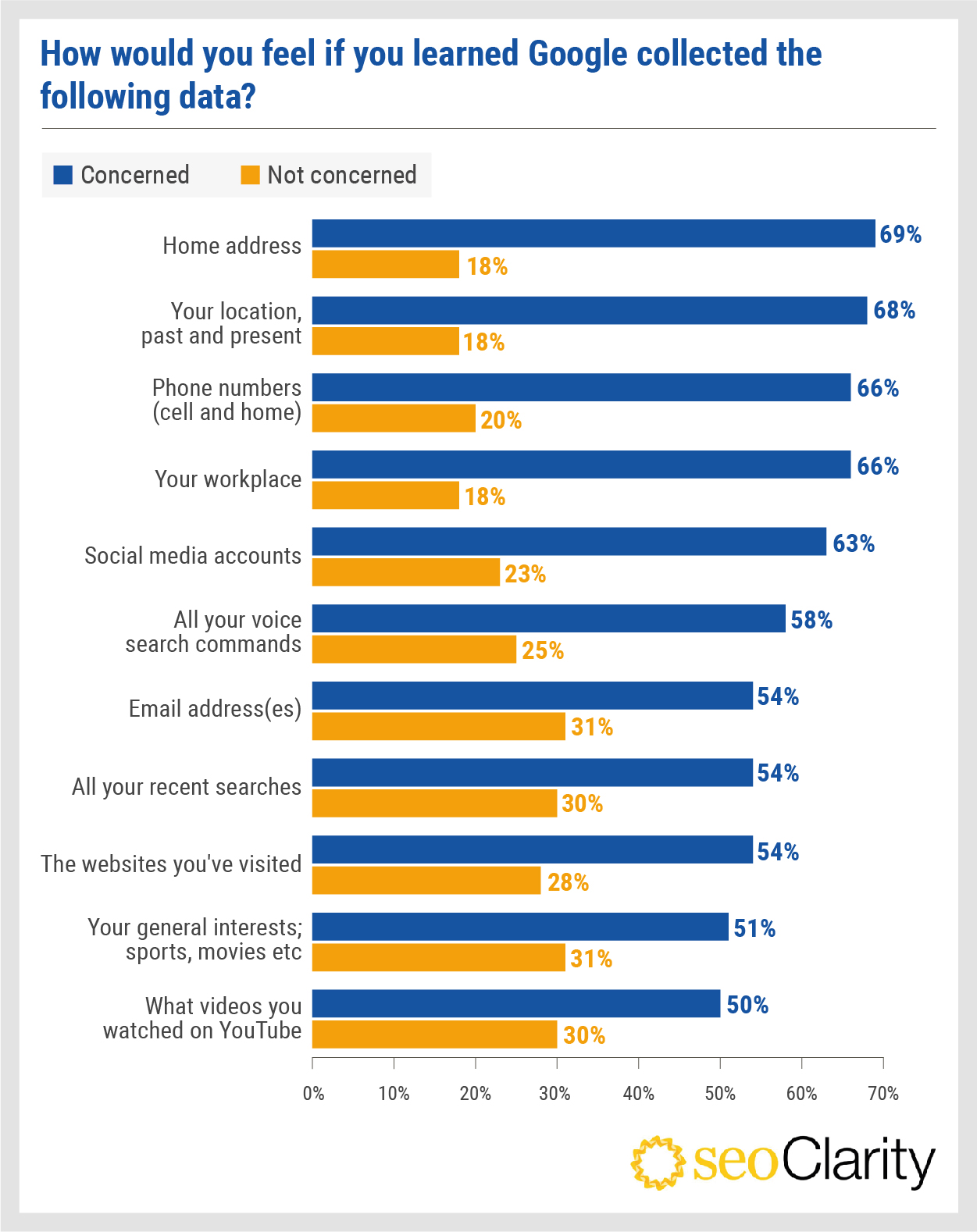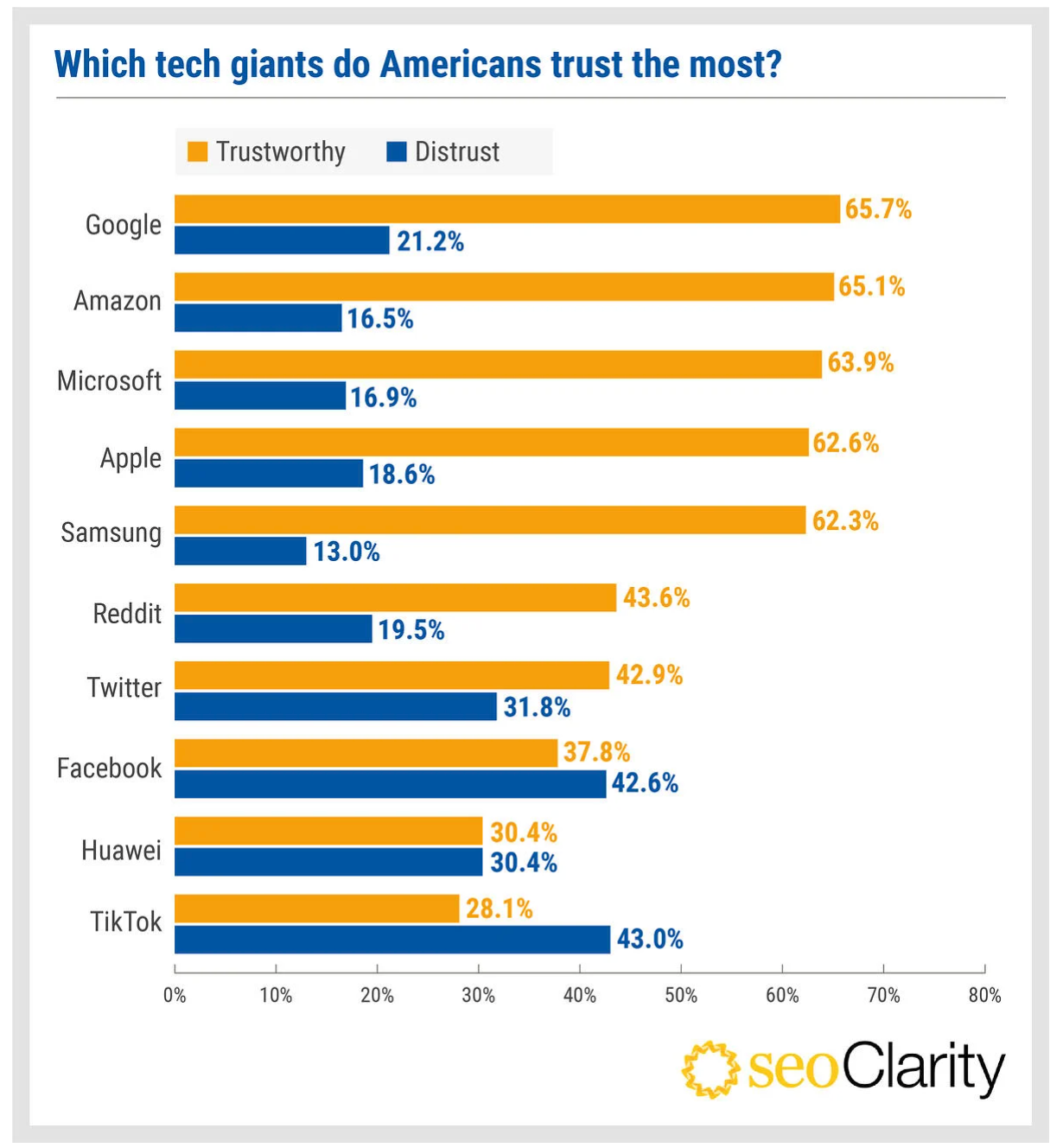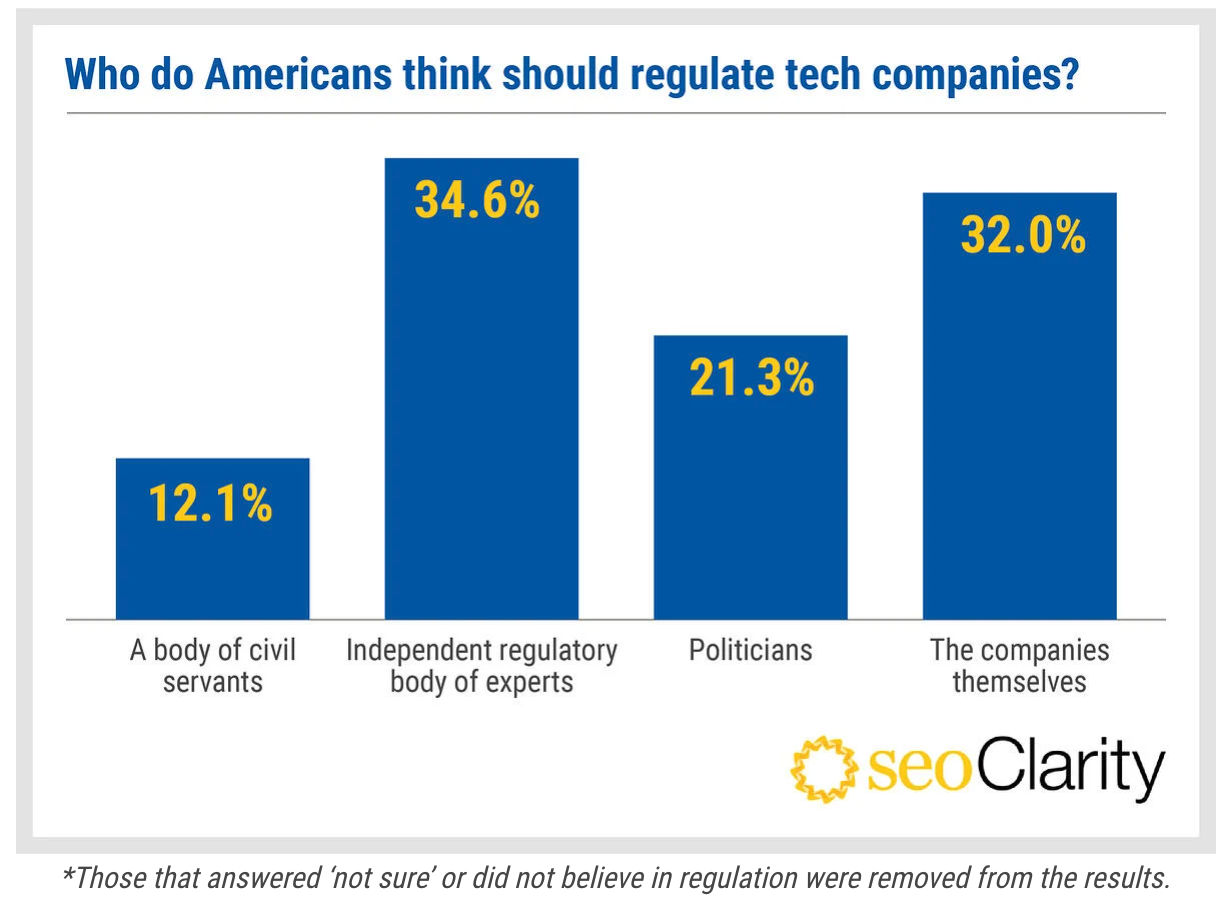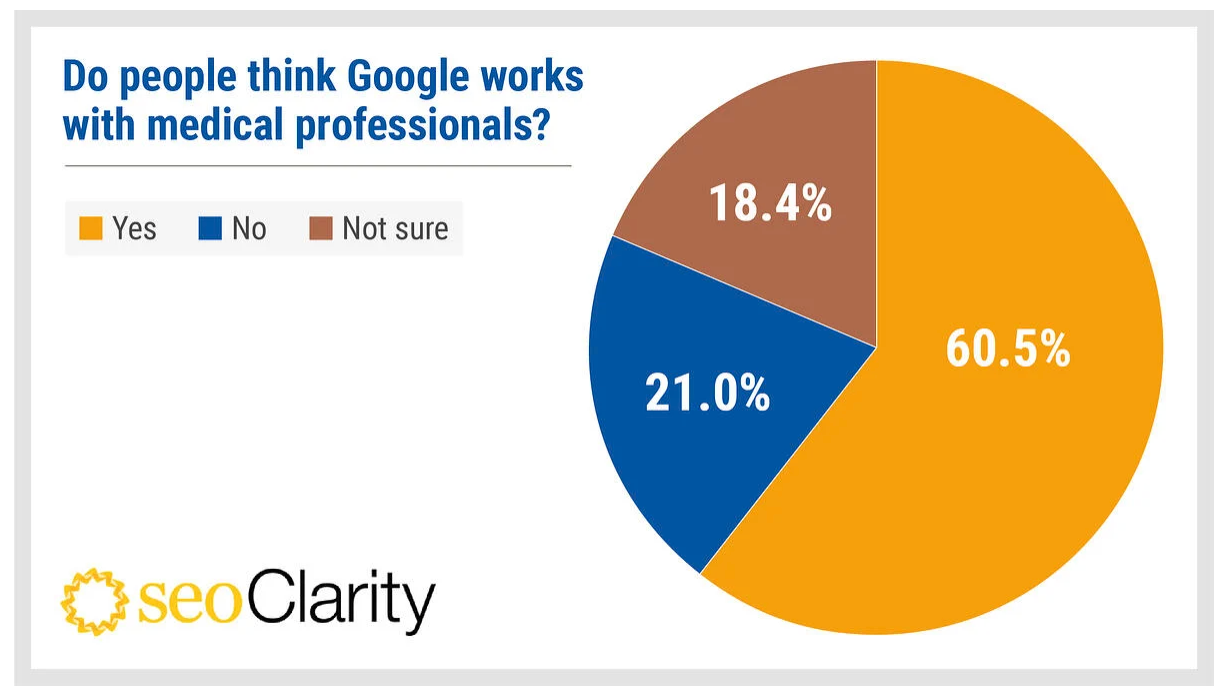In a world of fake news and misinformation, 1,057 U.S. residents were asked how they feel about social media and search platforms.
The recent survey uncovered trust levels in tech companies, which platforms cause concern and opinions regarding tech space developments.
SEO Clarity’s survey results might make Google feel like they have the upper hand, but they still have work to do.
Just Because Americans Trust Google The Most, That Doesn’t Mean They Trust Google Entirely
While 65.7% of survey respondents specified that they trust Google the most, and one in five participants agreed that they will ‘always’ trust the tech giant’s results, not all responses were positive.
29% of survey participants said they don’t think Google is transparent or clear enough when listing an ad, even with the ‘AD’ icon displayed on listings.
A massive 69% of respondents are worried about the data Google collects. When asked how they would feel if they discovered Google collected certain data pieces, the biggest concerns surrounded the giant knowing their home address, past and current location, phone number, and workplace.
Americans Trust Facebook And TikTok The Least
Even though TikTok boasted 100 million users towards the end of last year, it is the least trusted, with only 28% of respondents seeing the social platform as trustworthy.
Facebook and Twitter fared slightly better, with 37.8% and 42.9% of Americans surveyed stating they trusted them, respectively.
Perhaps documentaries such as The Great Hack and The Social Dilemma have increased concerns over social media platforms accessing and selling our data, or even using it to target us with specific content to achieve their goals and sway opinions, as Cambridge Analytica did a few years back.
Whatever the reason, 73% of respondents think both search and social media platforms should be regulated more. The most popular opinion is that an independent regulatory body of experts should be involved or that they should regulate themselves.
Perhaps a Code similar to that in Australia, whereby digital platforms opt into certain commitments to battle against disinformation, fake news, and misinformation, would suffice.
The survey also revealed that 73% of respondents want the giants to have more responsibility for fact-checking content.
Facebook, Twitter, and Google already have fact-checking processes in place; however, these are not carried out by the giants themselves.
Regardless, the survey suggests that current measures are not enough to relieve concerns over fake news and misinformation, with 67% calling for the platforms to specify when content is fake.
American’s Require More Digital Education
The most worrying statistic to come from the survey stated that 61% of respondents think medical professionals verify all medical content they find on Google.
While Google’s algorithm is understood to show the most trustworthy information as highly as possible in the SERPs, it is dangerous to think that every piece of medical information found via Google has been verified by a medical professional.
50% of respondents also believe that websites have control over where their site appears in the SERPs. Wouldn’t that be a dream come true for SEOs everywhere? And perhaps a nightmare for internet users.
68% of Americans surveyed also believed that bright colors had some impact on rankings, and two out of five participants don’t believe that search history influences search results.
Perhaps the higher level of trust in Google over social media platforms stems from a misunderstanding of how the information is collected and displayed in the SERPs.
What Can Social Media Giants Do To Increase Trust?
I spoke with John Lincoln about the glaring trust issues the likes of Facebook and TikTok are facing. Firstly, I asked him why there is such a difference in trust between search engines and social media platforms by users:
“[Search platforms] are more established businesses, and they are not subject to being aligned with the comments of individuals, various news sources, and generally any type of content being published on their platforms.
The nature of social media sites with having this type of content that is unregulated in their feeds make it so that the site’s are aligned in the public eye with the people who use them. The community dictates the culture and view.”
When I asked him whether social media platforms should be more rigorously regulated, the response wasn’t exactly straightforward; which is unsurprising:
“There is a big conflict between freedom of speech, advertisers wanting to be aligned with content they approve and social media sites wanting to simultaneously please a community and also please board members, employees, and advertisers.”
He then went on to discuss how the algorithms show more content based on topics users are engaging with, further adding to the problem of fake news and misinformation spreading.
His recommended resolution is radical in itself:
- Social giants need to make it 100% clear how people are being targeted through advertisements, how their algorithms work, and when it comes to fact-checking, they need to display the data and sources behind their facts clearly.
- If they believe news published or advertised on their site to be fake, they need to have multiple confirmed sources and data displayed that can be easily accessible.
- As a further step, it would be really positive to show both sides of the argument and why the conclusion was reached that it is fake news. It cannot be a one-sided response; otherwise, there will never be trust in social media.
Social media giants have the opportunity to be an industry first if they were to be 100% transparent about how they operate. The result of which would hopefully be an increase in trust levels on the part of its users.
However, that would have its own consequences, as marketers would naturally want to use any information to manipulate the algorithms to boost their clients and businesses online.
With this survey, how platforms currently handle fake news and Codes being implemented overseas; one thing is certain, search and social platforms have a lot of work to do.
Not only do they need to increase trust in their brand, but they also need to educate their audiences better to help them decide for themselves whether the content they are seeing is trustworthy or not.
You can read SEO Clarity’s survey results here.









![[SEO, PPC & Attribution] Unlocking The Power Of Offline Marketing In A Digital World](https://www.searchenginejournal.com/wp-content/uploads/2025/03/sidebar1x-534.png)